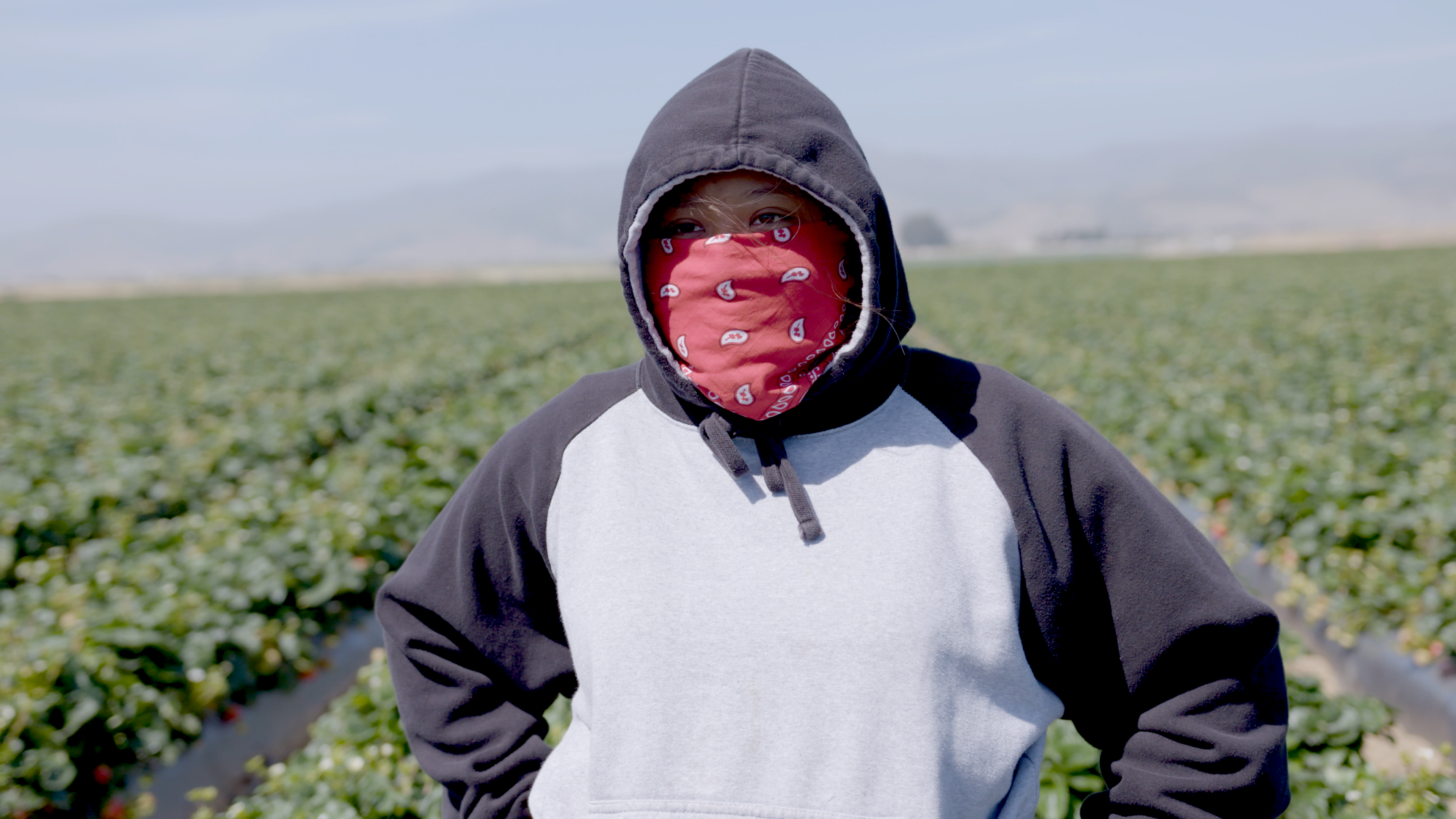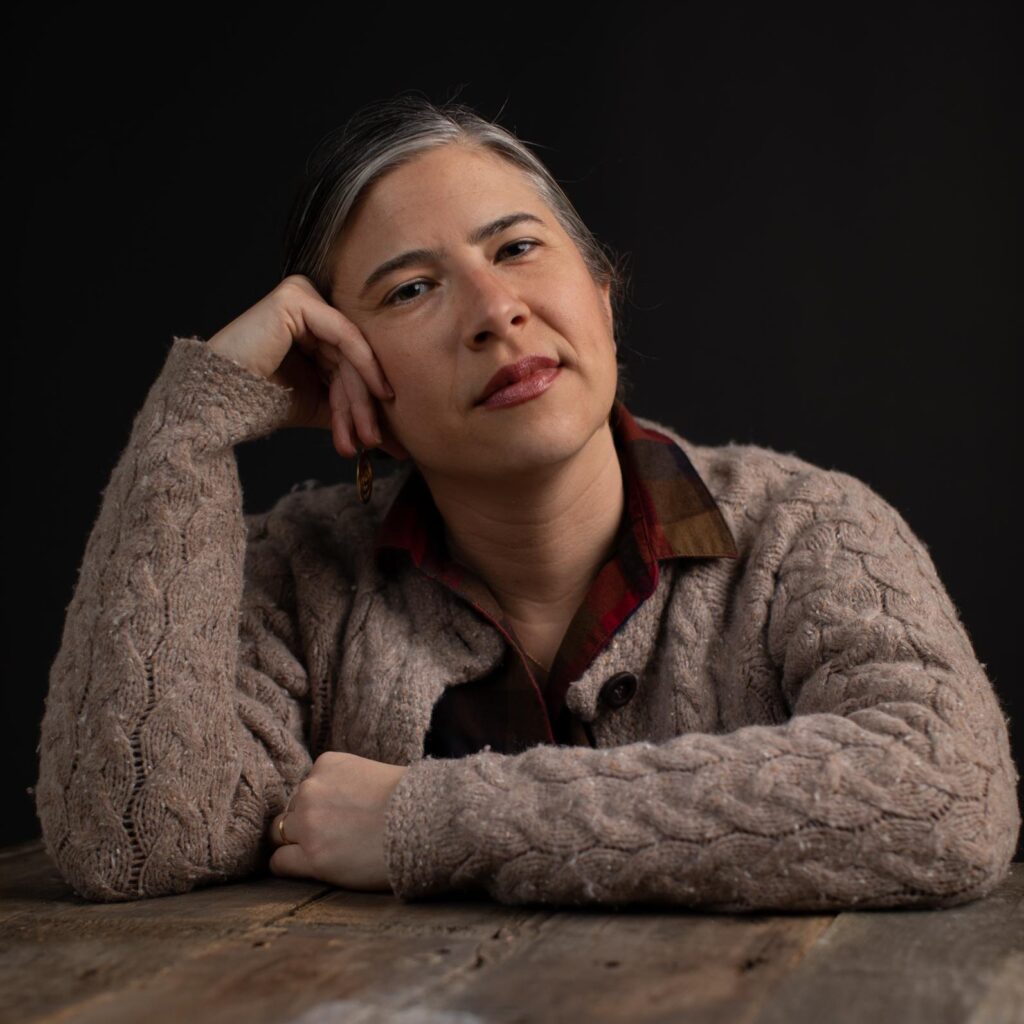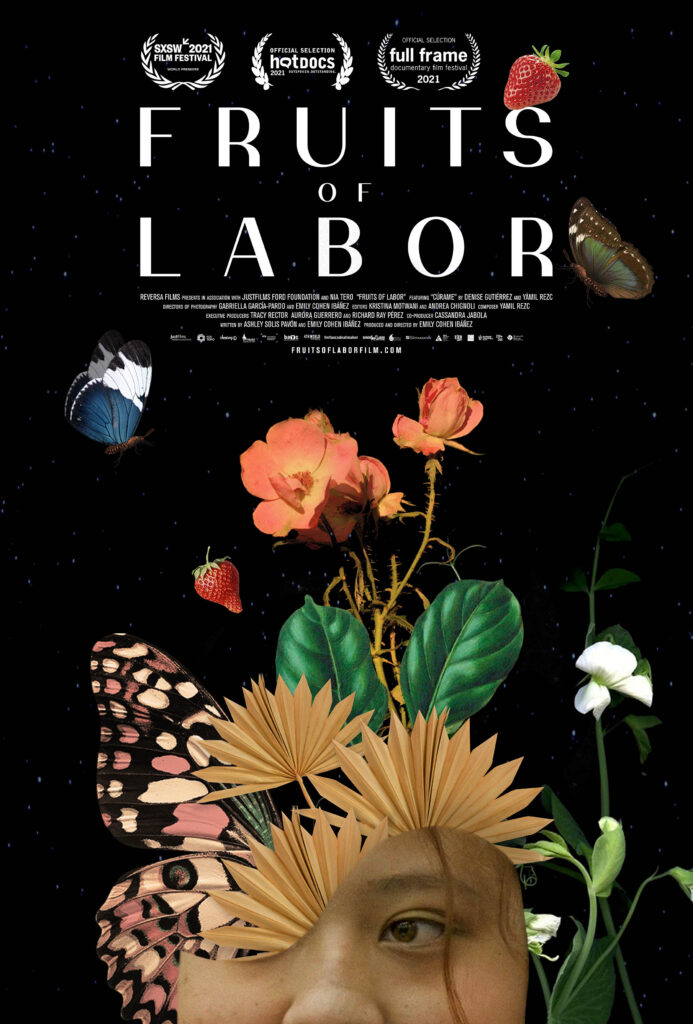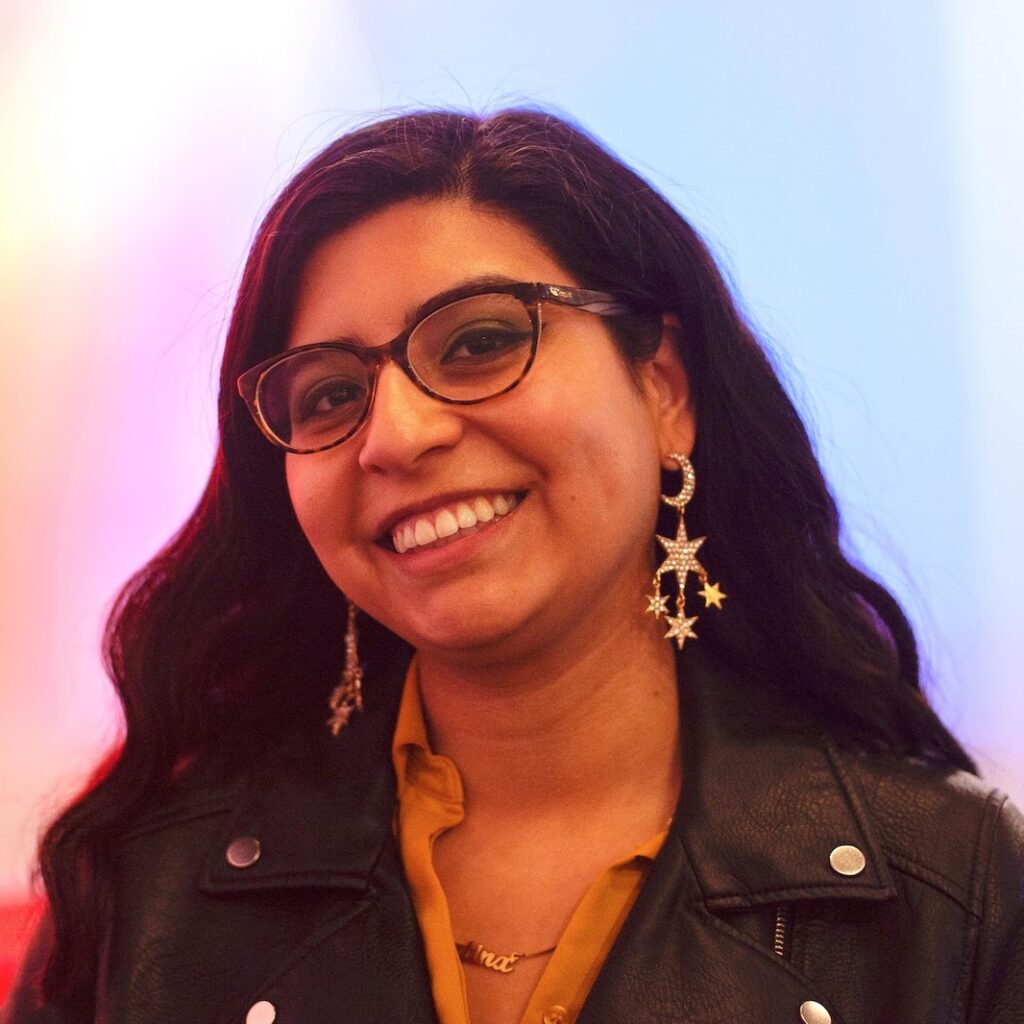
08 Oct Healing Through Collaborative Filmmaking: An Interview with the Director of Fruits of Labor
BY KRISTAL SOTOMAYOR
For many children of immigrants, there is an immense pressure to support their family and siblings. The eldest child typically holds the most responsibility by translating for their parents, caring for their siblings, and putting their dreams on hold to support the family. In the documentary Fruits of Labor, directed by Emily Cohen Ibañez, the Colombian American filmmaker forms a unique relationship with high school senior Ashley Solis to explore the coming-of-age story of a second-generation Mexican American teen.
After school, Solis works in the strawberry fields in California to provide for her family. She lives with her single mother and siblings in a working class town where working in the fields is typical. Through agricultural labor, the film explores Solis’ spiritual ancestral connection with the earth and nature through a poetic voiceover paired with animated and timelapse images of fruits and flowers. The film highlights a unique version of modern American life through the lens of a Latina teen farm worker.
Cohen Ibañez’s work is infused with social activism, exploring topics like labor, the environment, and healthcare. Her 2015 film Bodies at War (MINA) examines Colombian communities impacted by landmine injuries. Fruits of Labor, her feature debut, premiered at the 2021 SXSW Film Festival. The film debuted on POV on PBS on October 4th.
Kristal Sotomayor interviewed Cohen Ibañez for cinéSPEAK.

cinéSPEAK: I wanted to ask you how you got started on Fruits of Labor. What was the process of beginning work on the film?
Emily Cohen Ibañez: I had met Ashley and her family a couple years before I started actually filming. I was doing arts development work in her community. I was teaching a college class and decided to create a video collective with youth from farm-working families and families that do low wage work [with] my college students. In this collective, which we call the River Park Garden Collective, they made a community film about a community garden that actually you see a bit of it in the film. And Ashley just really stood out. She’s [a] very sensitive, engaged, young person. I was drawn to her and got to know her family. It was after Trump’s election where there was a noticeable increase in ICE (Immigration and Customs Enforcement) raids. All these kids that I’ve been working with in the video collective were suddenly working in the field. Children have long worked in the field but there was a marked increase. It was pretty dramatic, like a one day to the next kind of thing. What was happening is with increased ICE raids, in the factories and in the fields there was a major labor gap. What I see here in California, for example, and in towns across this country and people who are doing low wage labor are [that they are] often Brown people. I thought, this is an important story to tell because it’s undertold and I wanted to feature this really strong woman, Ashley. She was complex, she was strong, and a young person that was going through a transformative moment in her life. There’s just a dearth of coming-of-age stories for young Brown women and working women. I thought, this is the way I want to tell the story. I approached Ashley and I was lucky that [it was] an immediate “yes.” We made a great team as collaborators. It really went from there. That’s how the film started.
cinéSPEAK: Ashley is credited as co-writer on the film. How did you go about getting her to be interested in the film but also to do more than just be filmed, to actually have some say in the film? Could you talk a little bit about that?
ECI: That’s something that I long found important. There’s a history of thinking through power dynamics and collaboration. There’s also a current conversation in the documentary field around authorship and power. That’s the way that I wanted to work and Ashley was game for it. I don’t think it’s appropriate for every film. For this kind of film where you’re really having a central protagonist’s coming-of-age of a young person, there’s all this space for lyricism and it was a perfect film to be able to do this. Ashley was the perfect collaborator for it. Ashley is not only in front of the lens; especially with character-driven stories, [protagonists] are always, in a way, co-writing with a filmmaker. She’s become officially part of the film team and the way that process worked is in [post-production]. I would talk about scenes with her or ask her questions [about] what was going on in her life and talk about the story in a very transparent way. Her and even her mom are in on a story. I think it’s always the case but just making that much more explicit. We did a lot of workshops together thinking through self expression and emotion. Most of these things were really difficult. At one point, I even hired a curandera [healer] that was her friend to do cleansing after we did some difficult shoots, even certain things that didn’t even make it in the film. We were really exploratory and thinking through our feelings and reflections on what she was going through.

cinéSPEAK: I really like that! This co-creation process sounds very collaborative but also very healing at the same time. I think that’s really beautiful.
In the film, there’s often references to blooming and blossoming. There’s time lapse footage of flowers and monarch butterflies. I was wondering if you could talk a little bit about those aspects of the film. Was that more your idea? Was it Ashley’s, or was it something you came up with together?
ECI: The footage in particular were more choices on my end. They were certainly things I presented to Ashley and talked about. I just think that they were a part of her story. I do think it’s collaborative in the sense that Ashley has this beautiful way of understanding the ancestors and the connection to growing food and the strawberries. The wild berries are inhabited by ancestral spirits. While she might not have been in there picking those images with me, the inspiration comes from the way that she sees the world.
cinéSPEAK: Talking about the filmmaking process more holistically, because it seems like you really put a lot of care and intention into the relationship, what was your connection with Ashley’s family?
ECI: I was able to develop quite a close relationship to Ashley’s family. She’s pretty much integrated with my own. Ashley’s family knew my sister before [Ashley] met me. My sister heads an NGO that works with the community. That’s how I ended up collaborating with the youth. We did a thing after the film with both of our moms [because they are both] named Beatriz. They feel this connection together that they both sort of expressed.
For me, I always like developing relationships way before even turning on the camera. Getting to know people, I think that that’s really important. Just spending time, even if it was going to a protest together or just having a meal together, especially, I would say, with Ashley’s mother. I see the heart of the story is their relationship. Her siblings were a little more shy. I would say the people I was closest to were really Ashley and her mom. I think that shows in the footage.

cinéSPEAK: The film really reads like a coming-of-age story. It’s really beautiful. And the intimacy is so striking, like hearing her voice-over and seeing these really intimate moments with her and her mom. I wanted to ask, being a woman and a daughter, how did you connect with the story that you were telling?
ECI: I was raised by a single mom. My father died when I was young. And so there’s a connection. I think the moms [my mom and Ashley’s mom] talked about that too, of being from an immigrant family. My family came from Colombia. Growing up, I didn’t have the same economic issues as Ashley so there’s differences but there’s many overlaps being both Latina women who were born and raised in the U.S. and growing up with single moms with siblings. [We understand] what that’s like in this country and that feeling of loneliness. Frankly, I could really relate to her coming-of-age. I was a really shy 15 year-old, deadly shy, much more shy than Ashley. Over the years, her way of public speaking has really come into her own. I think for me, even being an older person, I’ve come into my own and found my voice with Ashley. I’ve done a lot of filming in war situations, mainly with men. This was a real shift for me. I think I found myself in [exploring] what are the stories that I really can tell the best, and I want to tell, and need to tell?
cinéSPEAK: A theme that I saw in the film was the burden of the first daughter in immigrant families. I wanted to ask you, do you relate to that? Was that something that you were looking to put in the film? Or did it just naturally blossom into the story?
ECI: I’m really interested in women and domestic life. There’s a push, for some people, to be in the work environments and not so much the home environment. To me, as for women workers, the obligation of family and home completely intersect and are entangled with what your work life is. You can’t separate it. In terms of the burden for the daughter, yes. I was the youngest child in my family and there were other burdens related to that. Each family dynamic can be different. Certainly in a single parent home it’s often the oldest daughter [who carries responsibility]. With Ashley that’s as clear as day. That’s really the universal conflict that I thought a lot of people are gonna relate to. This is because most people struggle between their desires for personal freedom and family obligations. We all have that to a different degree. Specifically, the dynamics of a Latina family, being the oldest daughter in a single mom home. It was something that I was drawn towards but also just naturally existed within Ashley’s particular life.
Where to watch: PBS

Kristal Sotomayor is a bilingual Latinx freelance journalist, documentary filmmaker, and festival programmer based in Philadelphia. They serve as the Awards Competition Manager for the International Documentary Association, Programming Director for the Philadelphia Latino Film Festival, and Co-Founder/Journalist of ¡Presente! Media Collective. In the past, Kristal has written for ITVS, WHYY, AL DÍA, Documentary Magazine, cineSPEAK and Autostraddle. They are a 2020 and 2021 Sundance Press Inclusion Initiative awardee. They are currently a member of the cinéSPEAK Editorial Collective.

Sorry, the comment form is closed at this time.